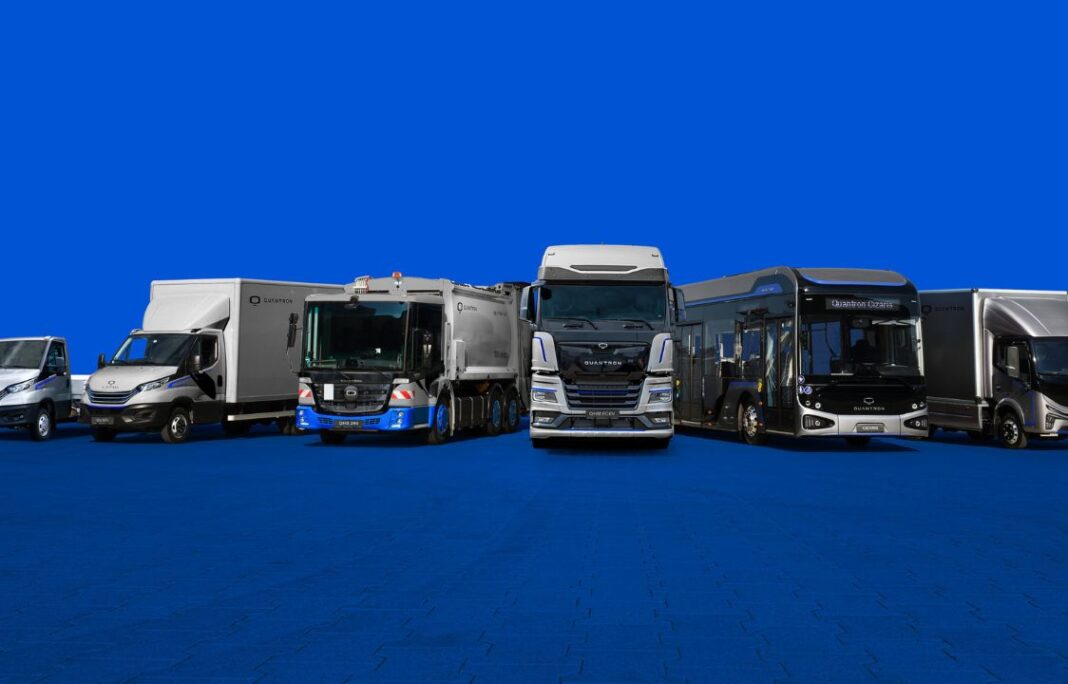Despite experiencing record-breaking heatwaves, droughts and environmental challenges due to rising global temperatures, there is cause for optimism.
Efforts to combat climate change are gaining momentum, and MIT Technology Review has launched an annual list to recognise 15 Climate Tech Companies that are at the forefront of driving emissions reduction and transforming polluting sectors of the economy.
MIT Technology Review’s “15 Climate Tech Companies to Watch in 2023” highlights startups and established firms working on climate technologies. The list, curated through research and expert consultations, features companies with the potential to significantly reduce emissions and counteract climate change.
These companies are pioneers in sustainable electricity generation, energy storage, food production, manufacturing, and transportation, as well as adaptation to global warming effects.
The selection is based on their innovative solutions and proven track records in implementing climate solutions.
Important new developments in science and technology
MIT Technology Review’s climate list, alongside its other features like 10 Breakthrough Technologies and 35 Innovators Under 35, acknowledges the challenges faced by innovative companies in disrupting established industries.
While they do not endorse every aspect of these companies, they highlight technologies worth exploring in the urgent race to develop cleaner and more sustainable business practices.
The publication emphasises the importance of recognising progress and solutions as a powerful counter to defeatism, providing motivation and momentum in the global effort to combat climate change.
15 ClimateTech Companies to watch
These businesses, ranging from nuclear fusion to cow-free burgers, hold the potential for combating climate change. Below are the 15 ClimateTech Companies to watch for.
Fervo Energy: The Texas-based company is advancing geothermal technology, enabling wider access to clean energy by creating fractures underground for efficient water circulation. These enhanced geothermal plants offer stable, carbon-free electricity, crucial for balancing renewable sources like wind and solar on greener grids.
Ørsted: Former fossil-fuel company Ørsted claims to be a leader in harnessing offshore wind power. The company is building large offshore wind farms in Europe and installing some of the first turbines in US waters, playing a key role in helping the world achieve its climate goals.
The company is tasked with cleaning up one of the world’s dirtiest industrial sectors with its low-carbon facilities.
H2 Green Steel: Stockholm-based H2 Green Steel is constructing a significant steel plant in northern Sweden, utilising green hydrogen and renewables to drastically reduce climate pollution. The startup is pioneering cleaner practices in steel production, addressing one of the largest sources of industrial pollution globally.
Commonwealth Fusion System: Massachusetts-based Commonwealth Fusion System is working on a fusion approach rooted in extensive research, aiming to address past industry disappointments. While their first commercial reactor is a decade away, if successful, it holds profound climate benefits.
NuScale: US-based NuScale aims to revive the stagnant nuclear power industry with safe and affordable small modular reactors. Recently approved by the US Nuclear Regulatory Commission, the company plans to start construction in 2025, signalling a significant step forward for the project.
BYD: The company’s innovative battery technology has positioned it as a leader in the global electric vehicle market. Its affordable and versatile cars are increasing accessibility to EVs, potentially aiding countries, especially China, in significantly reducing emissions from transportation.
GEM: China-based GEM, leveraging two decades of experience in recycling batteries and electronics, claims to be leading the charge in making electric vehicle batteries greener. The company gives these batteries a second life by repurposing them or extracting the valuable minerals they contain, contributing significantly to sustainable battery recycling practices.
Climeworks: Zürich-based Climeworks is combating catastrophic global warming by pioneering direct air capture technology. Its approach involves using giant machines to suck CO2 directly from the atmosphere, offering a method for removing carbon and addressing the urgent need to mitigate climate change alongside efforts to eliminate fossil fuels.
ReNew: ReNew is a key player in India’s energy transition, significantly increasing the nation’s renewable energy capacity, constructing energy storage infrastructure, and aspiring to produce green hydrogen in the future. The company claims that its efforts are pivotal in India’s shift towards sustainable and clean energy solutions.
NotCo: Chile-based NotCo utilises AI to develop plant-based alternatives for dairy and meat products. Partnering with major global brands, the company create foods with a lower environmental impact, contributing to the reduction of climate change effects.
Twelve: California-based Twelve claims to be a conversing carbon dioxide emissions into sustainable jet fuel. The company has already inaugurated the first commercial-scale production facility for power-to-liquid sustainable aviation fuels in the US, marking a significant step toward eco-friendly air travel.
Form Energy: Massachusetts-based Form Energy is developing iron-based batteries capable of storing renewable energy on the grid for extended periods. These batteries save energy for times when sources like wind and solar aren’t active.
By utilising iron, an abundant metal, the company aims to create cost-effective batteries, making widespread energy storage practical and accessible.
Gogoro: Taiwan-based Gogoro claims to have taken a unique approach, similar to a reverse Tesla. Instead of building a network of charging stations to sell vehicles, Gogoro sold scooters to establish a market for its battery-swapping network.
Sublime Systems: US-based Sublime Systems says it has pioneered a groundbreaking method for producing cement. Their approach utilises electrochemistry to significantly reduce emissions by modifying chemical reactions and eliminating the need for high temperatures, marking a major advancement in sustainable cement production.
Blue Frontier: Florida-based Blue Frontier addresses the growing demand for air conditioning by cooling buildings more efficiently using alternative refrigerants. The company’s approach aims to reduce electricity consumption, mainly sourced from fossil fuels, and mitigate harmful refrigerant leaks. Additionally, its units store energy to prevent grid overload.






